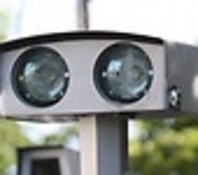MORE speed cameras will be installed in high-risk accident areas as figures show Victorians are driving slower than ever.
The average speed in 60km/h zones has dropped by 10 per cent since 1998.
The average metropolitan speed in that year was 70.6km/h.
By last year, it was down to 63.3km/h. In that period, the annual road toll in 60km/h zones in metropolitan Melbourne plunged from 102 to 30.
"The statistics show the camera system is working, drivers are slowing down and that saves lives," said Victoria's top traffic officer, Assistant Commissioner Robert Hill.
"If you don't speed, you have nothing to worry about. It's only those in the minority who speed who have a problem with the cameras."
The speed figures emerged as the Government considers the VicRoads speed-limit review, which will recommend restrictions around the state.
The numbers are based on the 85th percentile measurement, the major parameter used by engineers and traffic planners. It is the speed at which 85 per cent of vehicles travel under free-flowing traffic conditions.
This year's state road toll of 165 is 22 down on the same time last year.
But Mr Hill said he had been challenged by Chief Commissioner Ken Lay to find the next "watershed moment" and drive the toll down further.
Mr Hill said 30 per cent of road trauma last year was caused by excessive speed.
"We had the introduction of seatbelts, breath-testing, random breath-testing, speed cameras and then drug testing," he said. "Each one saw significant decreases in the road toll.
"I now have to work on the next watershed moment, find the silver bullet that will improve road safety again."
Mr Hill said the risk of collision doubled for every 5km/h over the limit.
"There will be further deployment of speed cameras in identified high risk areas," he said.
Transport Accident Commission director Julian Lyngcoln said connection between excessive speed and road death was well-understood.
"It would definitely appear from this data that the culture is changing," he said. "Speed cameras are definitely a part of that."
Speeding, red-light and unregistered vehicles fines levied after speed camera breaches totalled $65.9 million in the first three months of this year.
hearaldsun.com.au 10 Aug 2012
Drivers are becoming 'speed - cam - phobes' to such a degree that they are driving (dangerously) in the right hand (overtaking) lane on freeways with 100-110km/h speed limits at speeds of 80-90km/h.
The requirement to "Keep left unless overtaking" is there for a reason, and road users that are not only endangering other drivers, but causing frustration, and overtaking to be done on the blind side, are risking the lives of others as well.
Since this type of dangerous road activity requires more police to enforce and does not bring in the revenue as easily as speeding fines, it is deliberately hushed by authorities and their corporate media lap dogs.
The truth is simply distorted by both parties.


No comments:
Post a Comment